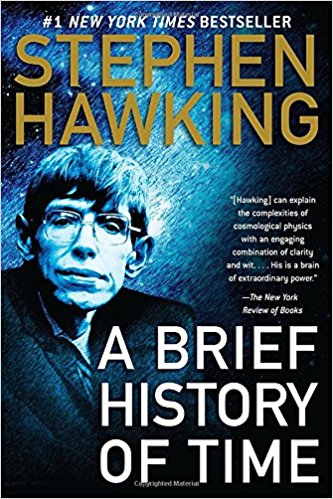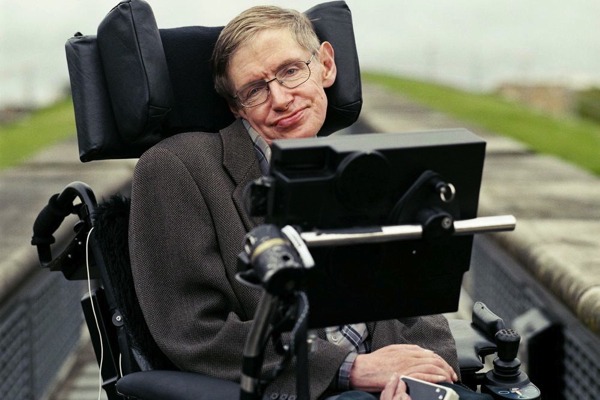A Brief History of Time Summary
5 min read ⌚
 What else can be said about Stephen Hawking? – We can simply encourage you, to really dive into the center of our existence by reading the “A Brief History of Time Summary”.
What else can be said about Stephen Hawking? – We can simply encourage you, to really dive into the center of our existence by reading the “A Brief History of Time Summary”.
In this book summary, we outline the essential aspects in a nutshell.
Who Should Read “A Brief History of Time”? And Why?
In reality, Stephen Hawking is at least on the same level as Albert Einstein – the greatest theoretical physicist of the 20th century. His legacy in “A Brief History of Time” remains deeply embedded in our social culture, a process which lasts for decades.
Hawking, on the other hand – out of passion wrote a fact-filled, and engaging book, for people all around to perceive evolution from another impartial standpoint.
We believe that this book is suited for all individuals willing to expand their knowledge in various fields.
Despite the insights of the processes in the universe, it presents numerous studies and analysis that question religion, our daily habits and much more.
About Stephen Hawking
 Stephen Hawking was born on January 8th, 1942 in England. Probably many people consider him as the righteous successor of Albert Einstein in the field of physics, philosophy, and evolution.
Stephen Hawking was born on January 8th, 1942 in England. Probably many people consider him as the righteous successor of Albert Einstein in the field of physics, philosophy, and evolution.
He was given the honors to hold the Isaac Newton chair at the University of Cambridge and received the presidential medal of freedom, the highest award a civilian can get in the U.S.
“A Brief History of Time Summary”
If you haven’t heard of the wheelchair-bounded genius, known by the name of Stephen Hawking, you probably need to do some reading.
His leading theories on evolution confused many theoreticians and scientists who taught that the chapter of human development is closed.
What about our knowledge?
In fact, the vast universe offers plenty of room for surprise visits, meaning that our discoveries can be twisted in a second. According to many, he is already an icon, in various scientific fields due to its contribution to the global culture.
Let’s cut to the chase:
It would be ignorant to accept the notion that Hawking, didn’t earn his reputation or his place in the Science “Hall of Fame” long before he publicly expressed his views.
This claim is supported by many prominent figures, who were stunned by the “A Brief History of Time.”
How often do we see a person, who shares such amazing insights?
Not every day that is our point – You are about to be introduced to the world’s fundamental facts, which shape our mindset and thinking patterns through the “A Brief History of Time Summary”.
The rise of science and its branches:
Long before the Christ, an ancient civilization out of curiosity launched a philosophical campaign to satisfy their thirst for answers. We are referring to the Greek countries.
Aristotle, a prominent philosopher, theoretician, and scientist of his time, embarked on a journey to resolve the dilemma of human existence. Probably that was the official date, from where it all began.
Imagine this, without any evidence, 2400 years ago Aristotle wrote – The planet is round and probably we are not alone in this vast space. A contradictory statement at the time, because according to many, the Earth was still a flat plate, or the center of the universe, while other elements were orbiting around it.
This claim or theory was not acknowledged nor accepted until the arrival of Galileo Galilei in the 17th century.
Stay tuned for more:
Sir Isaac Newton, is linked to his book called Principia – the most exciting, breathtaking masterpiece, or classic ever published in the realm of physical sciences.
His discoveries were driven by a single notion – How these “universal” bodies float? What power is pulling them in, or out? Under what circumstances can a certain planet abandon this natural route/ is it even possible?
What was the end result?
The analysis required time and effort, something Newton had in abundance, the only thing missing was support. For the record, it’s fair to mention the law of gravity, which he invented or discovered.
Every body in the universe attracts other entities and is attracted by force emerging from a different one. As the distance reduces, the link becomes more evident.
What is happening behind closed doors?
According to Aristotle’s beliefs, an object is not prone to movement unless some person relocates it. A valid claim, but highly unusual in those days. However, this statement or idea was questioned by both Galileo Galilei and Newton.
Key Lessons from “A Brief History of Time”
1. Newton’s struggle
2. Aristotle wasn’t right about everything
3. The obstruction of human development
Newton’s struggle
His theories marked the beginning of an extraordinary era, filled with progress and hope. He used mathematics, and arguments from his fellow “scientists” to put all pieces together and draw a conclusion. However, all these efforts came at a price, a position well-known to all knowledge-seekers.
The world will remember his name for the rest of time.
Aristotle wasn’t right about everything
In fact, gravity messed things up. All joking aside, as stated in Newton’s book, gravity or the pull from the inner core, works regardless of the weight of an object. For instance, the law of gravity doesn’t distinguish between entities – a theory that contradicted Aristotle’s perception.
First, Galileo presented this claim which was later supported by Sir Isaac Newton as well – in his laws of motion.
The obstruction of human development
After Aristotle and Pythagoras’s discoveries, the next step in human evolution linked to our planet took the renowned Polish Priest, and astrologist Nicholas Copernicus almost 1,800 years ago. Inspired by these philosophers, he started the long-term examination of how actually things unfold in the universe.
A topic which intrigued many, but in those days, almost any discovery contradicting the Church’s holy relics was equal to a death sentence. The battle against ignorance continued, next in line was Newton.
Like this summary? We’d Like to invite you to download our free 12 min app, for more amazing summaries and audiobooks.
“A Brief History of Time” Quotes
The universe doesn't allow perfection. Share on X If there really is a complete unified theory that governs everything, it presumably also determines your actions. But it does so in a way that is impossible to calculate for an organism that is as complicated as a human being. The reason… Share on X The increase of disorder or entropy is what distinguishes the past from the future, giving a direction to time. Share on X Only time(whatever that may be) will tell. Share on X What did God do before he created the universe? Share on XOur Critical Review
“A Brief History of Time” deservedly holds the pedestal as one of the most amazing masterpieces ever written. We deeply express our excitement and gratitude for this classic, and we advise each one of you to give it a try.
Emir is the Head of Marketing at 12min. In his spare time, he loves to meditate and play soccer.







